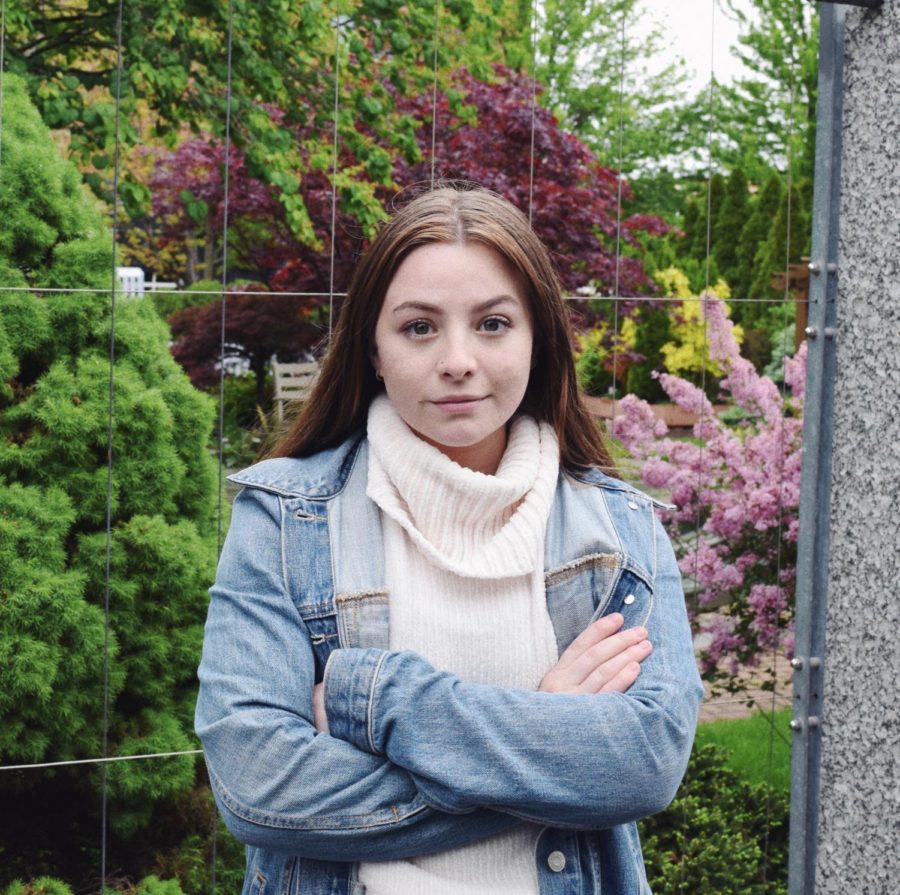Student Government candidates profile: Emily Rizvic
Emily Rizvic is a senior in political science and served as a UROC senator in Iowa State’s Student Government.
March 21, 2021
Iowa State Student Government election polls open Monday. Eleven of the seats on the ballot are represented by the United Residents Off-Campus (UROC). Emily Rizvic, a senior in political science, is one of 11 candidates running to serve as a senator for the college.
What makes you as an individual qualified for this position in Student Government?
I’ve been involved in Student Government for the last three years now, and so I’ve kind of seen how Student Government works, as in terms of the Senate. I served as the election commissioner so I never got to run for Senate in the past but I’ve always wanted to. However, this year I have actually resigned my position as election commissioner and I’ve taken the chance to run for a senator position. I’ve worked on a few projects within Student Government, one of them being the 2020 court reformed and so now we have a working Supreme Court and it’s been working really well. I know that there’ve been a few Supreme Court cases so far, and they’ve been really active this year so it was good to see a project coming to fruition.
What are your goals and what do you want to accomplish in your potential position in Student Government?
I think two things off the bat I really want to promote more transparency and collaboration. As far as transparency, there’s a lot that Student Government does that the student body doesn’t know about. A lot of it, because it doesn’t get recorded or, you know, the public doesn’t have access to that. I just want to promote all meetings to be open to the public. As well I want to make sure records and meetings are kept in shape so that way we can come back to them. I think it also is just like a best management practice for Student Government to have those resources because there always comes a point where you want to come back and revisit a project that might have stagnated. In terms of collaboration, I think we should be reaching out to students a lot more. In this past year, I can’t really recall many bills that were discussed besides COVID-19-related bills, but there should have been a focus on those that were really student-focused and student-oriented. And so I think that we should be going out to the student body and we should be talking to them and asking them what they need. And then talking to those in Student Government and bringing those projects to life, bringing that vision to life. I think also, inclusivity as well. This past week has caused a long conversation about racism on campus. For me, I’m white, but I really want to uplift other students’ voices so that they know that they’re heard and that when there’s concern it doesn’t just get heard, but you know something actually happens. So I would say that those three are very important to me.
What needs to change in Student Government? What are some issues you think need to be addressed?
I guess it’s going back to transparency and collaboration. I definitely think that students should be more a part of Student Government. What I’ve noticed in the last three years, especially in this past year, is that Student Government has been really Student Government-oriented and I don’t think like that. I think that it should be more student-based and that we are connecting with students and I think then more students would understand what Student Government does because there’s more of a connection.
How do you hope to represent your constituents?
I hope that when I’m seated, that you know that I represent them wholly and that they feel their voices are heard, that not only are they heard, they’re being listened to. So I hope that that’s what my constituents get out of me being seated.
Why do you think it is crucial that UROC has an equal role in Student Government?
I think it’s less about my voice and more about representing the students. I think that I can do that to the point where I’m having conversations with students. At the moment, a lot of what we do is really reaching out to stakeholders and bringing their concerns or their comments to light and have discussions and dialogue around that. And so I kind of hope to be more of a representative, and not just to be only my voice, I want it really to be the students’ voice.







